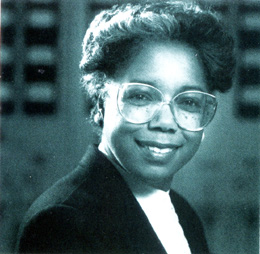On July 20, 1992, Mayor Norm Rice appoints African American Roberta Palm Bradley as superintendent of Seattle City Light. She is the first woman and the first minority to head the department. She will cut management positions and reduce some costs, but her management style developed at a private utility is viewed as abrasive to city employees. Before she is confirmed by the city council, she will dismiss two deputy superintendents and announce a reorganization. She will leave City Light in two years.
Bradley inherited an "'extraordinarily difficult department with years of real entrenched problems no one's paid attention to,' including sexual harassment, racism and a reactionary bureaucracy" according to a legislative source quoted by The Seattle Times. In the previous 15 years there had been four superintendents not to mention acting superintendents. Bradley succeeded Randy Hardy who left City Light the year before to head the Bonneville Power Administration. Bradley had been a division director at Pacific Gas & Electric in California. Rice appointed her to "take a good look at and evaluate the utility from top to bottom, and make it more efficient" (Seattle P-I).
City Light had been rocked by lawsuits alleging sex and race discrimination and sexual harassment. Employee morale was poor and surveys of customer satisfaction gave the department poor marks. Revenues did not meet expenses.
Bradley surprised many by reducing the number of deputy superintendents from four to two, before she had been confirmed by the city council. Of 22 top managers, Bradley fired 13 and several others resigned. She annoyed members of the city council by not consulting them before awarding the managers severance packages.
By eliminating the managers and other positions, "right sizing" (Annual Report), Bradley trimmed approximately $10 million from the utility's budget. She was praised for the reduction in costs and for some internal measures such as employee selection of supervisors, but there was no reduction in sex and race discrimination complaints.
According to The Seattle Times in 1994, "the agency has a long history of labor-management dissension. The strength of the unions and the political reality of Seattle -- heavily Democratic and pro-labor -- has made City Light especially resistant to the kind of reorganizing for greater efficiencies that private utilities have gone through."
Bradley announced her resignation in August 1994, "to get a life" (The Seattle Times). She took a position with the U.S. Information Agency in Croatia. She became the third city department head appointed by Rice to leave within a year.

